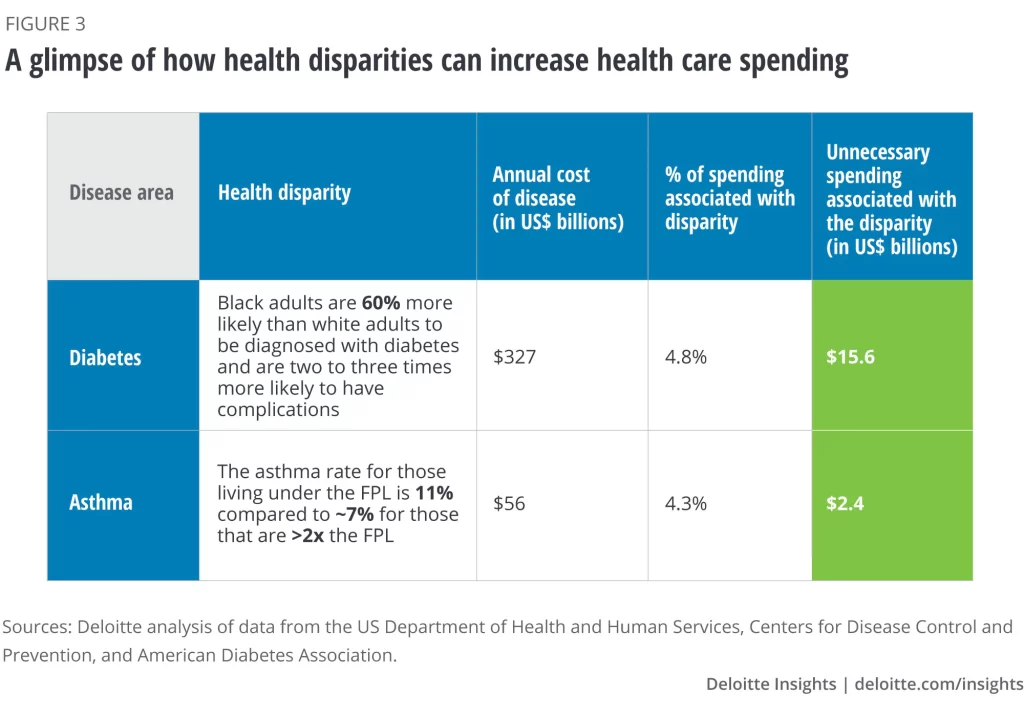A new analysis by experts at Deloitte finds that health inequities account for approximately $320 billion in annual health care spending in the U.S. — and could exceed $1 trillion by 2040, if left unchecked.
The cost of health inequities can be felt in individual’s pocketbooks and on the nation’s economy. Currently, health disparities cause roughly $42 billion in lost productivity per year. And, on our current trajectory, what the average American spends annually on health care will triple in the next 20 years.
“Every organization should plan to address health inequities by designing and enabling the future of health care around people and equity.” —Deloitte

While health inequities affect everyone, health technology startups are among the key stakeholders. Analysts say that healthtech is “redefining the fundamental notion of ‘health care’ by focusing on well-being and delivering a convenient, digital, data-enabled, affordable, and differentiated experience. They should balance innovation with gaining consumer trust by intentionally addressing and not exacerbating inequities.”
Deloitte proposes five aspects companies and health care organizations should consider as they design more equitable health care for the future:
- Be intentional. “Interventions to offset disparities cannot be imposed on a population. Interventions should instead be designed collaboratively in direct consultation with representatives of the population experiencing health inequity,” said Pierre Theodore, MD, vice president health disparities, Johnson & Johnson Global Public Health.
- Form cross-sector partnerships. “You need to look outside of health care for the mechanisms. Understanding the drivers outside of health care and working with the partners and sectors outside health care, will be key,” said Samantha Artiga, director, racial equity and health policy program, Kaiser Family Foundation.
- Measure progress. “Currently we have care gaps for underserved populations, and yet health care data is in pockets across the system. This creates significant data and information challenges. This is important to call out (on what we need to address) for equitable outcomes.”Measure progress,” said Adaeze Enekwechi, PhD, operating partner, health care, Welsh, Carson, Anderson & Stowe.
- Address individual and community-level barriers. As much as 80% of health outcomes are affected by factors beyond health care, such as environment, food, education, employment and infrastructure. “We can’t do this alone. There is a dire need for cross-industry collaboration and community engagement, optimization of the public health infrastructure, and investment in data and technology interoperability and standards,” said Darrell Gray II, MD, chief health equity officer, Elevance Health.
- Build trust. Building public trust in the health care system — from the level of the individual health care provider to the broader health care system — will be essential. Among the questions to consider in building trust: does your company workforce reflect the populations you serve?
At DxD HealthTech, we believe healthtech startups that prioritize diversity, equity and inclusion at their early stages will ultimately transform the innovation ecosystem and make health care more equitable for all.
Click here to read the full Deloitte analysis and see the methodology.

